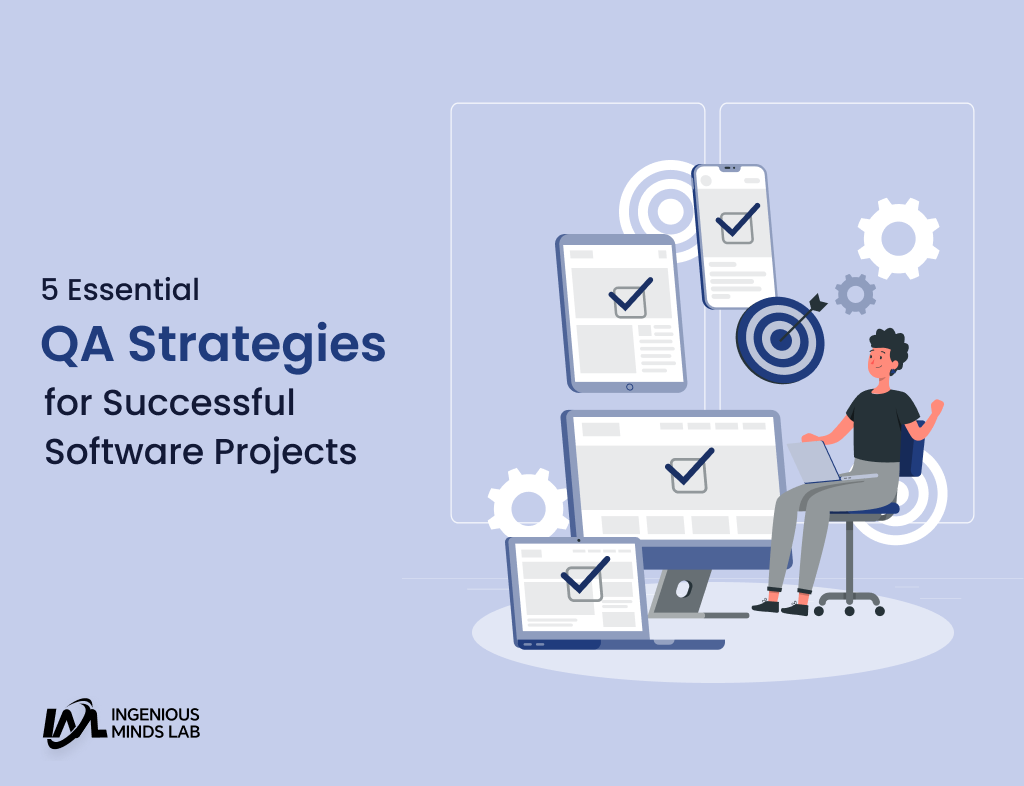In this Blog We will learn 5 Essential QA Strategies for Successful Software Projects. As We know Quality Assurance (QA) is a critical aspect of software development that ensures the delivery of reliable, robust, and bug-free applications. By implementing effective QA strategies, organizations can minimize risks, enhance customer satisfaction, and achieve successful software projects. In this blog, we will explore five essential QA strategies that can significantly contribute to the success of your software development endeavors.
1st Essential QA Strategies for Successful Software Projects-: Comprehensive Test Planning:
A well-defined test plan forms the foundation of successful QA. It involves identifying the testing objectives, defining the scope, and determining the required resources. A comprehensive test plan should encompass different types of testing, such as functional, performance, security, and usability testing. By thoroughly planning and documenting the testing approach, organizations can ensure that all aspects of the software are adequately covered, reducing the likelihood of critical issues going unnoticed.
2nd Essential QA Strategies for Successful Software Projects-: Test Automation:
Test automation plays a crucial role in accelerating the testing process and improving overall efficiency. By automating repetitive and time-consuming test cases, QA teams can focus on more complex scenarios and critical areas of the software. Automated tests can be executed consistently and repeatedly, ensuring reliable results and detecting regressions promptly. Leveraging robust test automation frameworks and tools enables teams to achieve higher test coverage, faster feedback cycles, and quicker time to market.
3rd Essential QA Strategies for Successful Software Projects-: Continuous Integration and Continuous Delivery (CI/CD):
Implementing CI/CD practices fosters a culture of frequent and reliable software releases. Continuous Integration involves merging code changes into a shared repository regularly, triggering automated builds and tests. Continuous Delivery extends CI by automatically deploying tested builds to production or staging environments. These practices enable early bug detection, promote collaboration among development and QA teams, and enhance the overall software quality. By integrating QA processes into the CI/CD pipeline, organizations can deliver high-quality software at an accelerated pace.
4th Essential QA Strategies for Successful Software Projects-: Bug Tracking and Management:
Efficient bug tracking and management are essential to ensure that identified issues are effectively communicated, tracked, and resolved. Utilizing a robust bug tracking system allows QA teams to log bugs, assign priorities, and track their status throughout the development lifecycle. Effective communication between QA and development teams facilitates prompt bug resolution and prevents issues from slipping through the cracks. Detailed bug reports with reproducible steps and relevant information help developers understand and address the problems efficiently.
5th Essential QA Strategies for Successful Software Projects-: Performance Testing and Scalability Assessment:
Performance issues can severely impact user experience and hinder the success of software projects. Incorporating performance testing as part of the QA strategy helps identify bottlenecks, assess system behavior under varying loads, and determine scalability capabilities. Performance testing includes load testing, stress testing, and endurance testing, among others. By simulating real-world scenarios and measuring system response times, organizations can proactively address performance issues and ensure optimal performance even under high loads.
Conclusion:
In today’s competitive software development landscape, ensuring the quality of software applications is paramount to achieving project success. By implementing the five essential QA strategies discussed in this blog, organizations can significantly improve the reliability, efficiency, and overall quality of their software projects. Thorough test planning, test automation, CI/CD integration, effective bug tracking, and performance testing play vital roles in minimizing risks, maximizing user satisfaction, and delivering successful software projects. Incorporating these strategies into your QA process will undoubtedly contribute to the long-term success of your software development endeavors.
